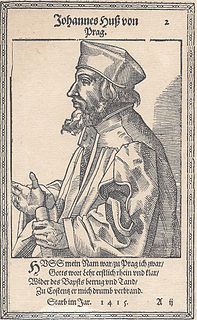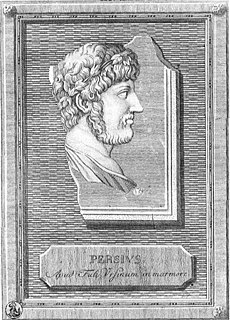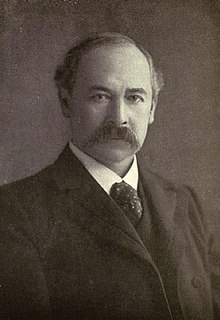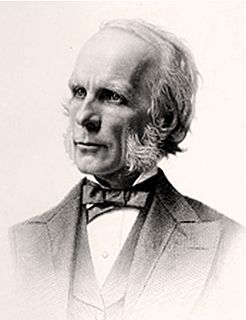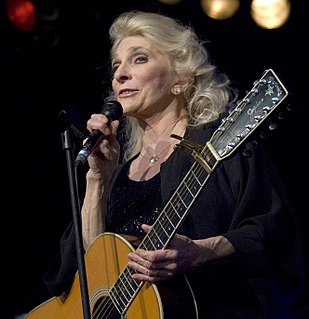A Quote by Jan Hus
I, Master John Hus, in chains and in prison, now standing on the shore of this present life and expecting on the morrow a dreadful death, which will, I hope, purge away my sins, find no heresy in myself, and accept with all my heart any truth whatsoever that is worthy of belief.
Related Quotes
He emphasised basic truths: you are not dying yet, you have to live your life until you are. Underpinning them was the belief that the grim reality of impending death can be talked away by trying to invest in the present reality of life. I didn’t believe that at the time, but now I do. By definition, you have to live until you die. Better to make that life as complete and enjoyable an experience as possible, in case death is shite, which I suspect it will be.
To-morrow is that lamp upon the marsh, which a traveller never reacheth;
To-morrow, the rainbow's cup, coveted prize of ignorance;
To-morrow, the shifting anchorage, dangerous trust of manners;
To-morrow, the wrecker's beacon, wily snare of the destroyer.
Reconcile conviction with delay, and To-morrow is a fatal lie;
Frighten resolutions into action, To-morrow is a wholesome truth.
At the end of the day, you just have to focus on winning. No one can take a win away from you. That's what I focused on. Life is not fair, so I don't go out there expecting it to be. I don't think any of us should go out expecting life to be fair. I think that's expecting too much, and I remind myself of that sometimes. You can get on with your life after that.
So to be sick unto death is, not to be able to die-yet not as though there were hope of life; no, the hopelessness in this case is that even the last hope, death, is not available. When death is the greatest danger, one hopes for life; but when one becomes acquainted with an even more dreadful danger, one hopes for death. So when the danger is so great that death has become one's hope, despair is the disconsolateness of not being able to die.
But why do some people support [the heretics]?" "Because it serves their purposes, which concern the faith rarely, and more often the conquest of power." "Is that why the church of Rome accuses all its adversaries of heresy?" "That is why, and that is also why it recognizes as orthodoxy any heresy it can bring back under its own control or must accept because the heresy has become too strong.
We are left with nothing but death, the irreducible fact of our own mortality. Death after a long illness we can accept with resignation. Even accidental death we can ascribe to fate. But for a man to die of no apparent cause, for a man to die simply because he is a man, brings us so close to the invisible boundary between life and death that we no longer know which side we are on. Life becomes death, and it is as if this death has owned this life all along. Death without warning. Which is to say: life stops. And it can stop at any moment.
Considering how many fools can calculate, it is surprising that it should be thought either a difficult or a tedious task for any other fool to learn how to master the same tricks... Being myself a remarkably stupid fellow, I have had to unteach myself the difficulties, and now beg to present to my fellow fools the parts that are not hard. Master these thoroughly, and the rest will follow. What one fool can do, another can.
And then the spirit brings hope, hope in the strictest Christian sense, hope which is hoping against hope. For an immediate hope exists in every person; it may be more powerfully alive in one person than in another; but in death every hope of this kind dies and turns into hopelessness. Into this night of hopelessness (it is death that we are describing) comes the life-giving spirit and brings hope, the hope of eternity. It is against hope, for there was no longer any hope for that merely natural hope; this hope is therefore a hope contrary to hope.
If I had my life over again I should form the habit of nightly composing myself to thoughts of death. I would practise, as it were, the remembrance of death. There is no other practice which so intensifies life. Death, when it approaches, ought not to take one by surprise. It should be part of the full expectancy of life. Without an ever-present sense of death life is insipid.
